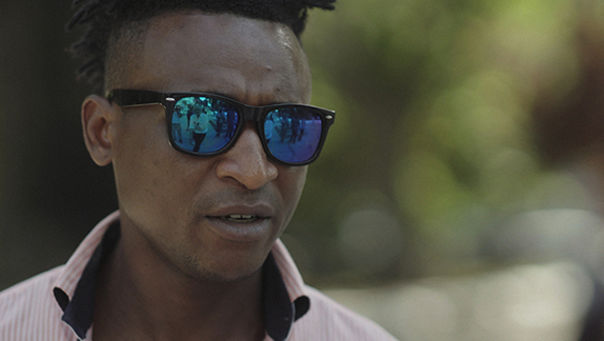Journalism and film
By Francisco Noronha

Still from PIAZZA VITTORIO
In PIAZZA VITTORIO, "punk" filmmaker Abel Ferrara’s humanist camera plunges into a convulsed Europe
Only the most oblivious will ignore that, underneath all the violence (emotional, physical) that characterize much of Abel Ferrara's filmography, there has always been an immensely human gaze on men, their vices and failures. It is not, therefore, a "domesticated" exercise that we encounter in PIAZZA VITTORIO, still a reflection on the violence, but now discursive, cultural, xenophobic, through which the filmmaker hears the transformations of the Italian capital.
The famous Roman square is the point from which Ferrara reflects on a whole country and, more than that, on Europe and the convulsive times it is facing. It is in this current place of conviviality for hundreds of immigrants, once a huge open-air market frequented by the exclusively "native" population, that the film abruptly begins, with an old woman violently insulting the Other, a statement that, paradigmatically, echoes both a Trump’s rhetoric and the obscene comments that swarm through social media.
Ferrara, half Italian, half American, in an intelligent historical connection, follows this initial scene with archive images of the Roman square to the sound of an American song that evokes the pilgrimage of the American people to California in the 30s in search of a better life – thus, suggesting a dialogue with the poignant way John Ford filmed THE GRAPES OF WRATH (1940). It is the same parallelism, in the background, veiled in the dialogue that the filmmaker himself maintains with a Nigerian immigrant, telling him that, similarly, he is in the square trying to earn a living and make his art (a somewhat ethically questionable comparison).
"I'm not a journalist, I'm a filmmaker", Ferrara tells one of the immigrants. This powerful sentence sums up the way in which, without falling into a manipulative or politically correct discourse, a reflexive look at a subject as complex as it is lacking in unequivocal answers is set. Far from the alleged "objectivity" that a journalistic approach would certainly seek, Ferrara builds, from the Italians’ and foreigners’ testimonies, old and new, a seismograph of the current situation in Europe.

